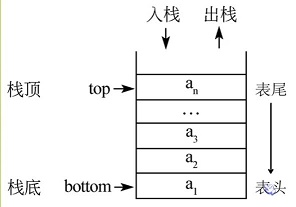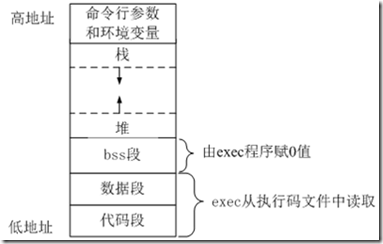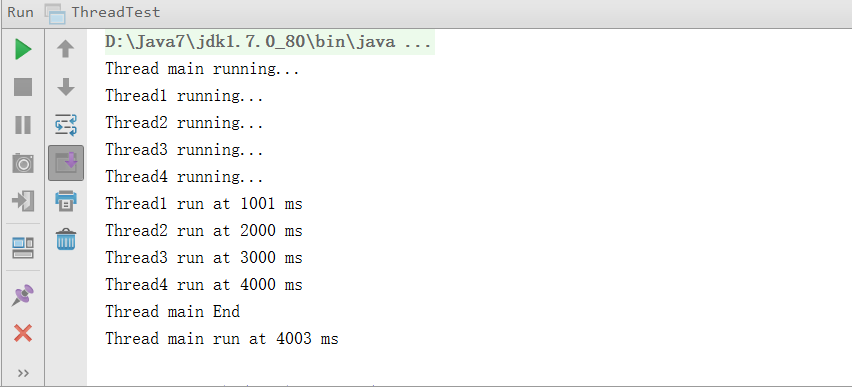Linux gpio驱动学习
首先我们来看一下gpio驱动框架吧
GPIO驱动的头文件为:include/linux/gpio.h和include/asm-generic/gpio.h。GPIO驱动框架的实现代码为:drivers/gpio/gpiolib.c。gpio操作增删改查架构:/** Add a new chip to the global chips list, keeping the list of chips sorted* by base order.** Return -EBUSY if the new chip overlaps with some other chip's integer* space.*/static int gpiochip_add_to_list(struct gpio_chip *chip){struct list_head *pos;struct gpio_chip *_chip;int err = 0;/* find where to insert our chip */list_for_each(pos, &gpio_chips) {_chip = list_entry(pos, struct gpio_chip, list);/* shall we insert before _chip? */if (_chip->base >= chip->base + chip->ngpio)break;}/* are we stepping on the chip right before? */if (pos != &gpio_chips && pos->prev != &gpio_chips) {_chip = list_entry(pos->prev, struct gpio_chip, list);if (_chip->base + _chip->ngpio > chip->base) {dev_err(chip->dev,"GPIO integer space overlap, cannot add chip\n");err = -EBUSY;}}if (!err)list_add_tail(&chip->list, pos);return err;}int gpiochip_add(struct gpio_chip *chip){unsigned long flags;int status = 0;unsigned id;int base = chip->base;struct gpio_desc *descs;descs = kcalloc(chip->ngpio, sizeof(descs[0]), GFP_KERNEL);if (!descs)return -ENOMEM;spin_lock_irqsave(&gpio_lock, flags);if (base < 0) {base = gpiochip_find_base(chip->ngpio);if (base < 0) {status = base;spin_unlock_irqrestore(&gpio_lock, flags);goto err_free_descs;}chip->base = base;}status = gpiochip_add_to_list(chip);if (status) {spin_unlock_irqrestore(&gpio_lock, flags);goto err_free_descs;}for (id = 0; id < chip->ngpio; id++) {struct gpio_desc *desc = &descs[id];desc->chip = chip;/* REVISIT: most hardware initializes GPIOs as inputs (often* with pullups enabled) so power usage is minimized. Linux* code should set the gpio direction first thing; but until* it does, and in case chip->get_direction is not set, we may* expose the wrong direction in sysfs.*/desc->flags = !chip->direction_input ? (1 << FLAG_IS_OUT) : 0;}chip->desc = descs;spin_unlock_irqrestore(&gpio_lock, flags);#ifdef CONFIG_PINCTRLINIT_LIST_HEAD(&chip->pin_ranges);#endifif (!chip->owner && chip->dev && chip->dev->driver)chip->owner = chip->dev->driver->owner;status = gpiochip_set_desc_names(chip);if (status)goto err_remove_from_list;status = of_gpiochip_add(chip);if (status)goto err_remove_chip;acpi_gpiochip_add(chip);status = gpiochip_sysfs_register(chip);if (status)goto err_remove_chip;pr_debug("%s: registered GPIOs %d to %d on device: %s\n", __func__,chip->base, chip->base + chip->ngpio - 1,chip->label ? : "generic");return 0;err_remove_chip:acpi_gpiochip_remove(chip);gpiochip_free_hogs(chip);of_gpiochip_remove(chip);err_remove_from_list:spin_lock_irqsave(&gpio_lock, flags);list_del(&chip->list);spin_unlock_irqrestore(&gpio_lock, flags);chip->desc = NULL;err_free_descs:kfree(descs);/* failures here can mean systems won't boot... */pr_err("%s: GPIOs %d..%d (%s) failed to register\n", __func__,chip->base, chip->base + chip->ngpio - 1,chip->label ? : "generic");return status;}EXPORT_SYMBOL_GPL(gpiochip_add);/*** gpiochip_remove() - unregister a gpio_chip* @chip: the chip to unregister** A gpio_chip with any GPIOs still requested may not be removed.*/void gpiochip_remove(struct gpio_chip *chip){struct gpio_desc *desc;unsigned long flags;unsigned id;bool requested = false;gpiochip_sysfs_unregister(chip);gpiochip_irqchip_remove(chip);acpi_gpiochip_remove(chip);gpiochip_remove_pin_ranges(chip);gpiochip_free_hogs(chip);of_gpiochip_remove(chip);spin_lock_irqsave(&gpio_lock, flags);for (id = 0; id < chip->ngpio; id++) {desc = &chip->desc[id];desc->chip = NULL;if (test_bit(FLAG_REQUESTED, &desc->flags))requested = true;}list_del(&chip->list);spin_unlock_irqrestore(&gpio_lock, flags);if (requested)dev_crit(chip->dev, "REMOVING GPIOCHIP WITH GPIOS STILL REQUESTED\n");kfree(chip->desc);chip->desc = NULL;}EXPORT_SYMBOL_GPL(gpiochip_remove);/*** gpiochip_find() - iterator for locating a specific gpio_chip* @data: data to pass to match function* @callback: Callback function to check gpio_chip** Similar to bus_find_device. It returns a reference to a gpio_chip as* determined by a user supplied @match callback. The callback should return* 0 if the device doesn't match and non-zero if it does. If the callback is* non-zero, this function will return to the caller and not iterate over any* more gpio_chips.*/struct gpio_chip *gpiochip_find(void *data,int (*match)(struct gpio_chip *chip,void *data)){struct gpio_chip *chip;unsigned long flags;spin_lock_irqsave(&gpio_lock, flags);list_for_each_entry(chip, &gpio_chips, list)if (match(chip, data))break;/* No match? */if (&chip->list == &gpio_chips)chip = NULL;spin_unlock_irqrestore(&gpio_lock, flags);return chip;}EXPORT_SYMBOL_GPL(gpiochip_find);static int gpiochip_match_name(struct gpio_chip *chip, void *data){const char *name = data;return !strcmp(chip->label, name);}static struct gpio_chip *find_chip_by_name(const char *name){return gpiochip_find((void *)name, gpiochip_match_name);}
gpio驱动输入输出设置,高低电平设置:
static int nx_alive_gpio_direction_input(struct udevice *dev, unsigned pin){struct nx_gpio_platdata *plat = dev_get_platdata(dev);struct nx_alive_g+pio_regs *const regs = plat->regs;setbits_le32(®s->outputenb_reset, 1 << pin);return 0;}static int nx_alive_gpio_direction_output(struct udevice *dev, unsigned pin,int val){struct nx_gpio_platdata *plat = dev_get_platdata(dev);struct nx_alive_gpio_regs *const regs = plat->regs;if (val)setbits_le32(®s->data, 1 << pin);elsesetbits_le32(®s->pad_reset, 1 << pin);setbits_le32(®s->outputenb, 1 << pin);return 0;}static int nx_alive_gpio_get_value(struct udevice *dev, unsigned pin){struct nx_gpio_platdata *plat = dev_get_platdata(dev);struct nx_alive_gpio_regs *const regs = plat->regs;unsigned int mask = 1UL << pin;unsigned int value;value = (readl(®s->pad_read) & mask) >> pin;return value;}static int nx_alive_gpio_set_value(struct udevice *dev, unsigned pin, int val){struct nx_gpio_platdata *plat = dev_get_platdata(dev);struct nx_alive_gpio_regs *const regs = plat->regs;if (val)setbits_le32(®s->data, 1 << pin);elseclrbits_le32(®s->pad_reset, 1 << pin);return 0;}static int nx_alive_gpio_get_function(struct udevice *dev, unsigned pin){struct nx_gpio_platdata *plat = dev_get_platdata(dev);struct nx_alive_gpio_regs *const regs = plat->regs;unsigned int mask = (1UL << pin);unsigned int output;output = readl(®s->outputenb_read) & mask;if (output)return GPIOF_OUTPUT;elsereturn GPIOF_INPUT;}static int nx_gpio_direction_input(struct udevice *dev, unsigned pin){struct nx_gpio_platdata *plat = dev_get_platdata(dev);struct nx_gpio_regs *const regs = plat->regs;if (nx_alive_gpio_is_check(dev))return nx_alive_gpio_direction_input(dev, pin);clrbits_le32(®s->outputenb, 1 << pin);return 0;}static int nx_gpio_direction_output(struct udevice *dev, unsigned pin,int val){struct nx_gpio_platdata *plat = dev_get_platdata(dev);struct nx_gpio_regs *const regs = plat->regs;if (nx_alive_gpio_is_check(dev))return nx_alive_gpio_direction_output(dev, pin, val);if (val)setbits_le32(®s->data, 1 << pin);elseclrbits_le32(®s->data, 1 << pin);setbits_le32(®s->outputenb, 1 << pin);return 0;}static int nx_gpio_get_value(struct udevice *dev, unsigned pin){struct nx_gpio_platdata *plat = dev_get_platdata(dev);struct nx_gpio_regs *const regs = plat->regs;unsigned int mask = 1UL << pin;unsigned int value;if (nx_alive_gpio_is_check(dev))return nx_alive_gpio_get_value(dev, pin);value = (readl(®s->pad) & mask) >> pin;return value;}static int nx_gpio_set_value(struct udevice *dev, unsigned pin, int val){struct nx_gpio_platdata *plat = dev_get_platdata(dev);struct nx_gpio_regs *const regs = plat->regs;if (nx_alive_gpio_is_check(dev))return nx_alive_gpio_set_value(dev, pin, val);if (val)setbits_le32(®s->data, 1 << pin);elseclrbits_le32(®s->data, 1 << pin);return 0;}static int nx_gpio_get_function(struct udevice *dev, unsigned pin){struct nx_gpio_platdata *plat = dev_get_platdata(dev);struct nx_gpio_regs *const regs = plat->regs;unsigned int mask = (1UL << pin);unsigned int output;if (nx_alive_gpio_is_check(dev))return nx_alive_gpio_get_function(dev, pin);output = readl(®s->outputenb) & mask;if (output)return GPIOF_OUTPUT;elsereturn GPIOF_INPUT;}



































还没有评论,来说两句吧...